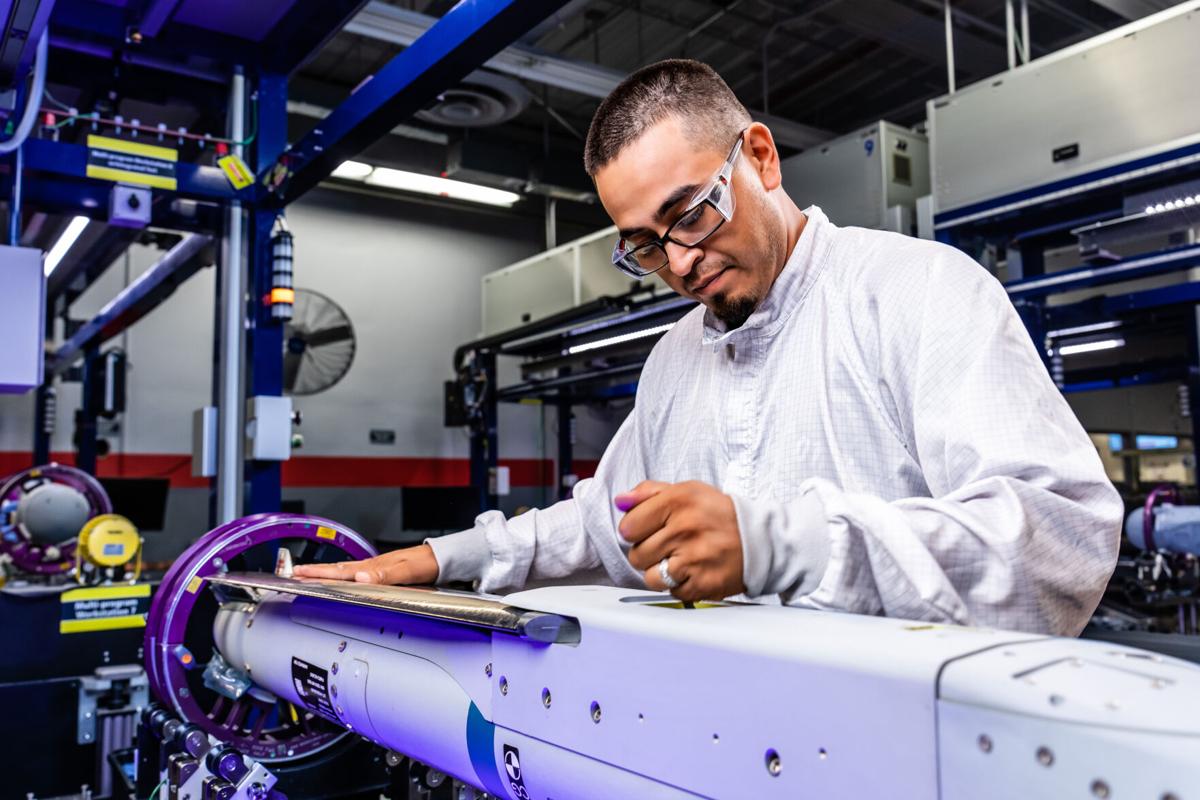Shares in RTX Inc., parent of defense contractor Raytheon in Tucson, rose Tuesday after the company’s adjusted third-quarter results beat Wall Street forecasts.
The company also announced a $10 billion stock buyback and an agreement to sell off Raytheon’s cybersecurity, intelligence and services business for $1.3 billion.
The company posted a third-quarter net loss of $964 million, or 68 cents per share, after taking a $5.4 billion charge related to defective powder metal used in engines made by its Pratt & Whitney unit that led to a recall of engines used in many airliners.
Third-quarter unadjusted revenue was $13.5 billion, down 21%.
But after adjustment for the special charges, RTX posted sales of $18.95 billion, up 12% versus prior year, and earnings per share up 3% at $1.25, both beating average estimates of analysts polled by Zacks Investment Research.
Shares in RTX, which have fallen since the company revealed the engine problem in July, rose on Tuesday to $78.35, up $5.22 or more than 7%, in trading on the New York Stock Exchange.
RTX also said it had entered into an agreement with an undisclosed buyer to sell its Virginia-based Raytheon cybersecurity business, which employs about 2,200 people.
RTX Chairman and CEO Greg Hayes said the company has made significant progress on its assessment of the Pratt & Whitney metal issue and expects the financial impact to be in line with the previously disclosed charge.
Raytheon has said its planned repairs to Pratt & Whitney geared turbofan engines will ground an average of 350 Airbus A320 series planes per year from next year through 2026 and cost the company some $7 billion.
Hayes said “historic demand” across the company’s commercial aerospace and defense businesses drove 12% organic sales growth during the third quarter and led to another record backlog of $190 billion.
Raytheon, whose defense businesses are all managed in Tucson, had third-quarter sales of $6.47 billion, up 3% versus prior year, mainly driven by increased sales in naval weapon systems, including the AIM-9X Sidewinder air-combat missile and “advanced technology” classified programs.
Raytheon recorded an operating profit of $560 million, down 18% from third-quarter 2022, amid higher sales volume on lower-margin programs and lower net program efficiencies, the company said.
Collins Aerospace posted revenue of $6.63 billion, up 16% from the prior year, with operating profit of $903 million, up 22%.
Collins’ unadjusted results included $1.4 billion in one-time special charges related to litigation and restructuring costs.
Pratt & Whitney had third-quarter sales of $926 million, down 83% from third-quarter 2022 after the $5.4 billion charge related to the powder-metal issue and recorded an operating loss of $2.48 billion, compared with a profit of $316 million in the prior year, after a $2.89 billion charge for the powder-metal matter.
Without the charge, Pratt earned an adjusted operating profit of $413 million in the third quarter, up 30% from the same period a year ago.
A mainstay air-combat weapon used by the U.S. and more than 40 allied nations, the Advanced Medium Range Air-to-Air Missile has been upgraded over three decades to meet emerging threats.





